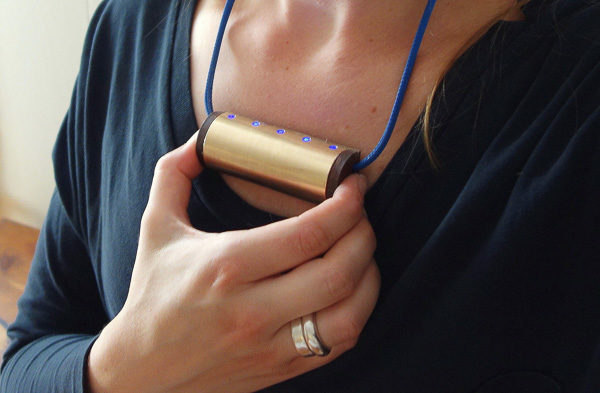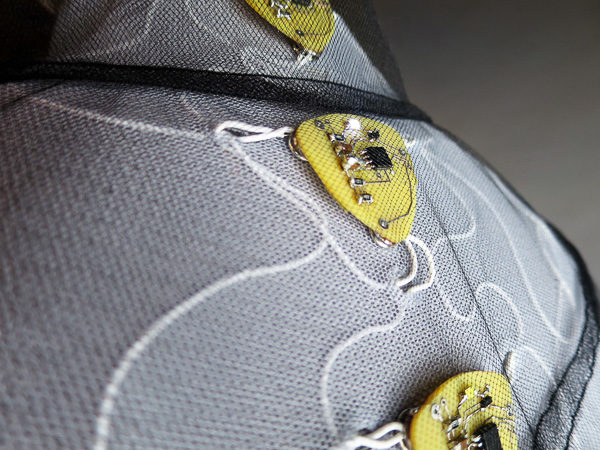Sci-fi-inspired prototypes focus of futurist designer’s talk
Published 03.19.2019
A futurist designer will share her insights into science fiction-inspired prototyping at the next Technology & Society Colloquia Series talk at Pennsylvania College of Technology.
Sophia Brueckner, assistant professor at the University of Michigan’s Stamps School of Art & Design, will deliver “Prototyping Alternative Futures” at 7 p.m. Thursday, March 21, in the Klump Academic Center Auditorium. The talk is free and open to the public.
 In addition to teaching digital fabrication and creative programming, Brueckner has taught sci-fi prototyping, a course combining sci-fi, extrapolative thinking, prototypes and the ethics of invention and design, at Massachusetts Institute of Technology, Harvard University, Rhode Island School of Design, Brown University and the University of Michigan. Both the class itself and her students’ projects have received international recognition and been featured by The Atlantic, Smithsonian magazine, Wired, National Public Radio, Scientific American and Fast Company, among others.
In addition to teaching digital fabrication and creative programming, Brueckner has taught sci-fi prototyping, a course combining sci-fi, extrapolative thinking, prototypes and the ethics of invention and design, at Massachusetts Institute of Technology, Harvard University, Rhode Island School of Design, Brown University and the University of Michigan. Both the class itself and her students’ projects have received international recognition and been featured by The Atlantic, Smithsonian magazine, Wired, National Public Radio, Scientific American and Fast Company, among others.
Born in Detroit, Brueckner earned a Master of Science in media arts and sciences at Massachusetts Institute of Technology, a Master of Fine Arts in digital + media at Rhode Island School of Design, and a Bachelor of Science in applied mathematics/computer science at Brown University.

The futurist artist/designer/engineer is founder and creative director of Tomorrownaut, a creative studio focusing on speculative futures and sci-fi-inspired prototypes.
Brueckner was a software engineer at Google, where she designed and implemented products used by tens of millions and, later, developed experimental projects within Google Research.
Her Penn College talk will focus on the art, design and engineering required to develop prototypes and inspire a more positive future.
Brueckner believes people’s ability to envision the future tends to fall between two unconstructive extremes. On one side, there are those who are blindly optimistic about technology; this attitude is often termed “techno-solutionism” – the naïve idea that every problem can be solved with technology. At the other extreme are those so critical of technology that they adopt an unrealistic Luddite attitude, avoiding technology altogether or assuming a dystopian future. Brueckner promotes “critical optimism,” which navigates between the two extremes, encouraging an earnest hopefulness that incorporates a healthy dose of criticality.

A question-and-answer session will follow the lecture, and conversation can resume during a reception in Wrapture, a dining unit on the first floor of the Klump Academic Center.
Honoring Daniel J. Doyle, professor emeritus and Penn College’s 1984 Master Teacher, the Colloquia Series features presentations by noted authors and academics.
For more information about Penn College, a national leader in applied technology education, email the Admissions Office or call toll-free at 800-367-9222.